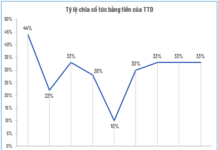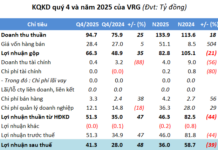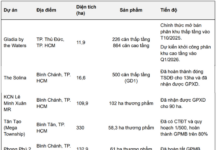VPBank’s digital bank, Cake, has sent messages and emails to customers warning them of new scams and advising users to be cautious. Specifically, scammers impersonating the MoMo fanpage send messages via Messenger, Facebook, or Zalo instructing customers to receive a 500,000 VND gift.
They then ask users to download the Cake by VPBank app, open a credit card, and provide screenshots of the card, OTP code. After obtaining the card information and conducting the transaction, the scammers will block communication with the victims.
Another scam involves impersonating messages and phone calls from e-commerce websites such as Shopee, Điện máy xanh, Tiki, Lazada… The scam group will make phone calls to announce a reward program and then ask the victims to become friends on Zalo, Telegram… to proceed with receiving the gift. They subsequently request customers to provide images of personal documents, bank account numbers to link and receive rewards.
“The scammers also trick customers by placing “fake orders to make money online” with increasing values and quantities, and then transfer money to receive commissions and gifts. After stealing the entire amount, they will delete messages and block contact” – this digital bank warns.

Banks continuously warn of various scams
Saigon Commercial Bank (SCB) has also issued a warning about scammers impersonating bank employees contacting customers to advise on raising credit card limits. Then, they add friends and chat via social networks like Zalo, Facebook… asking customers to provide ID card images, credit cards, access fake links, provide card information and OTP authentication code.
“With the above tricks, customers may face the risk of losing money in their credit cards, having card information stolen, or incurring bad debts” – SCB warns.
Another scam recently advised against by the Military Bank (MB) is the imitation of the bank’s leadership stamp and signature. The perpetrators approach customers by impersonating bank employees, posting loan advertisements, opening credit cards on social networking sites.
To gain trust, the scammers will send counterfeit documents with red stamps and the signatures of the bank’s leaders, requesting customers to deposit money into the account to support verification, approve loans, clear bad debts…
“The perpetrators continue to guide customers to provide OTP codes with scenarios such as this being an online authentication code, a code to receive interest rate discounts, a data synchronization code before issuance or an increase in card limits… in order to steal the balance in the account” – MB bank informs.
To protect their personal information, avoid scams, and unjustly lose money, banks advise customers not to provide personal information, card information to anyone, including self-proclaimed police, investigative agencies, bank staff, including: ID card numbers, residency permits, household registration books, electronic banking information (login names, passwords); transaction authentication information (OTP/Smart OTP messages); information about linked wallet accounts (login names/passwords). These pieces of information need to be kept confidential to prevent personal information theft and unauthorized use; and do not share this information on social networks.















